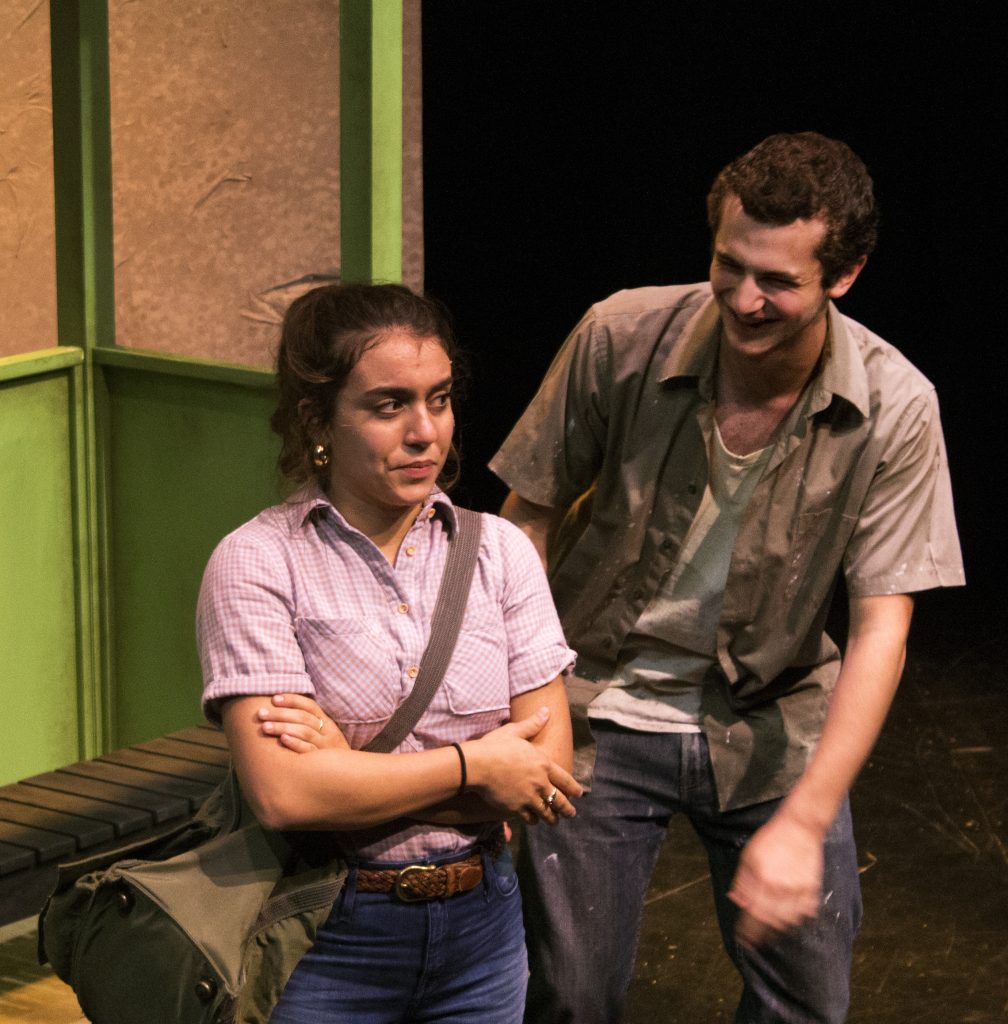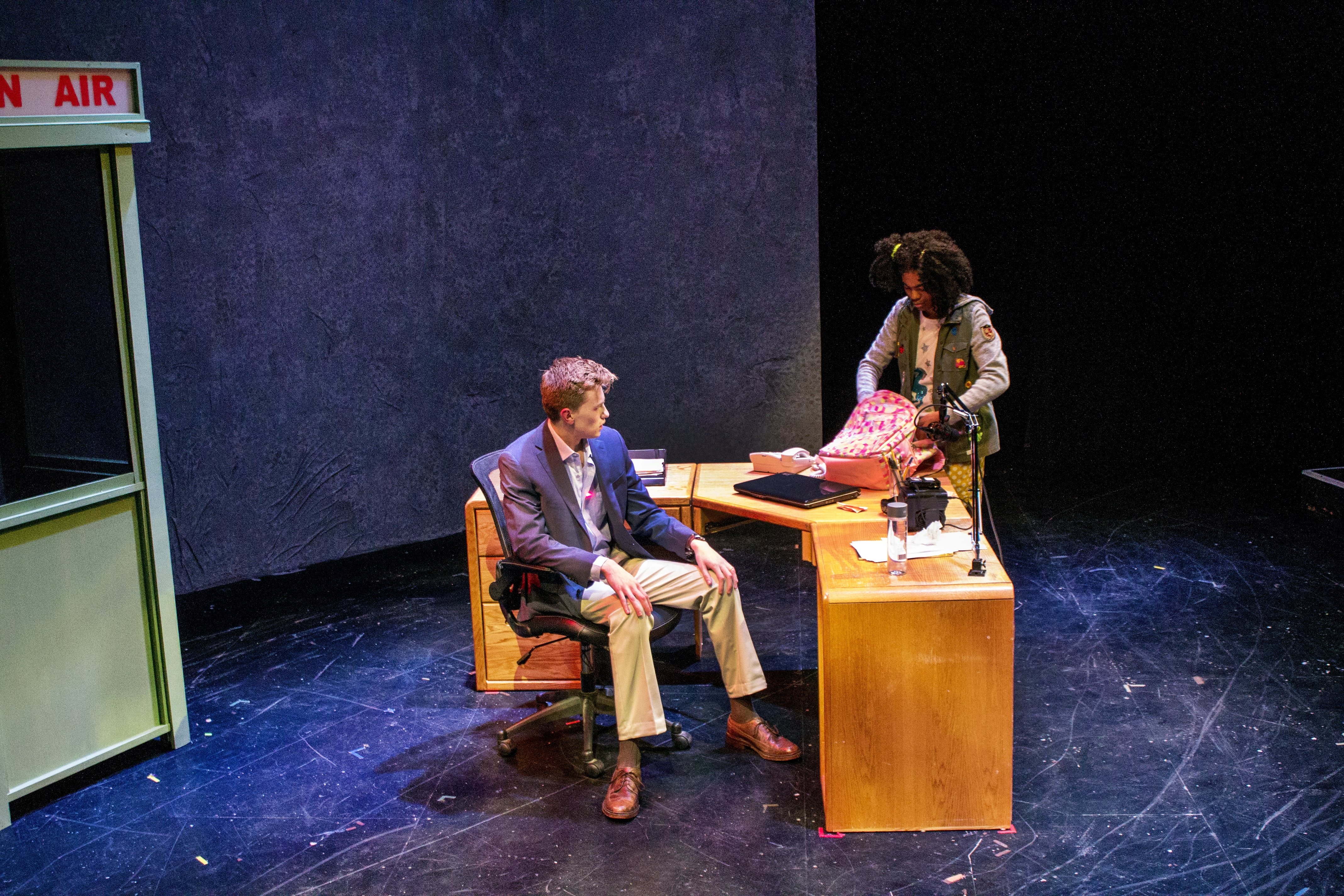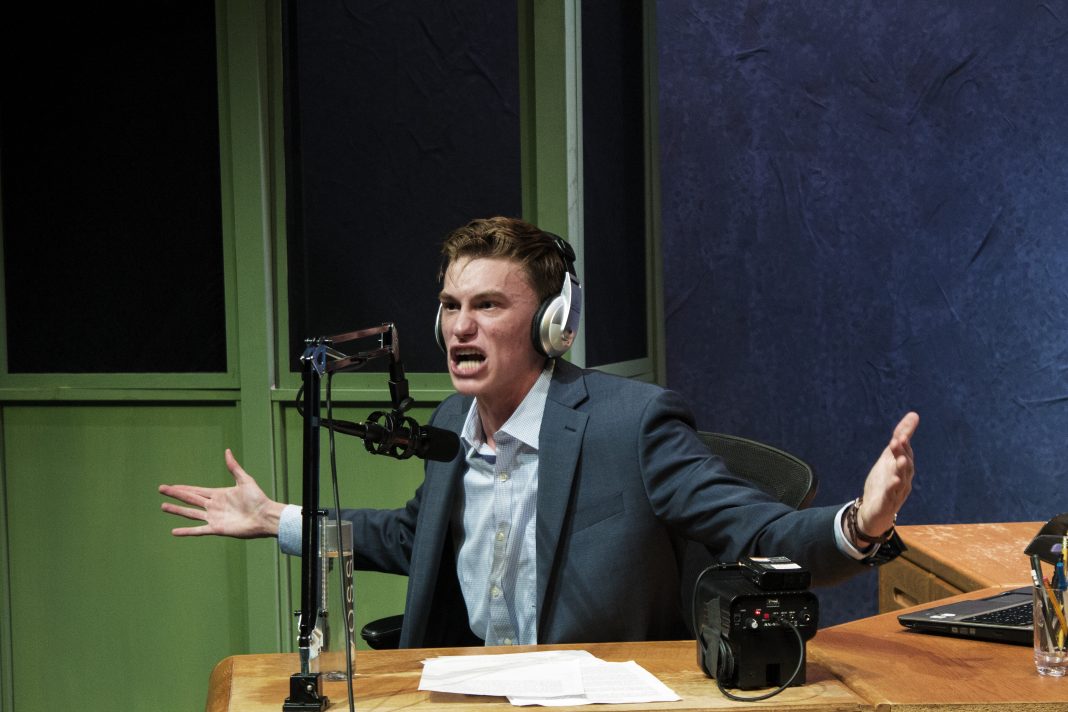This particular moment in history is one that is full of controversial narratives regarding race, religion, sexuality and a host of other deeply troubling topics. In a world where headlines continuously inform us of immigration laws, hate crimes, protests, attacks and so on, it becomes easy for the college student, safely tucked away from the fear of looking these issues in the eye, to forget the way they manifest themselves off the TV screen.
Enter Shadow Day by Steven Dietz and 187 by Jose Rivera, two plays that unabashedly address issues of hate and discrimination in psychologically thrilling and morally twisting manners. Shadow Day takes a look into a conservative radio show host’s psyche as he grapples with the moral implications of the, as he puts it: “Brutal humor and well placed hate” he unapologetically forces on the general public. The talk-show host is confronted not just by the concrete repercussions that he faces, such as calls from “emotionally driven not belief driven” activists, but by the fears of the reality he creates.
Director Genevieve Wall ’18 explains that this play offers the real and blunt realities that may be easily avoided but are still a driving force in today’s social atmosphere. Wall wanted this play to explicitly address the psychological repercussions faced by not only those who are targeted by such overt racism and prejudice that the talk-show host embodies, but also by he who houses those feelings. Furthermore, the play calls into question the audience’s own morals, calling them to question what fate this man deserved, and determine if he is capable of a drastic change in character.

187, a play written by an immigrant playwright, explores the dynamic between a seemingly hypocritical white male factory worker and his Latina co-worker as they wait for the bus. In a complex way, the play does not only question the kinds of prejudice humans embody, but also takes an introspective look into human fragility and the validity of the human experience that does not necessarily emanate in the eyes of the girl sitting at the bus stop.
Wall chose these particular plays as she was drawn to their unfinished endings: “They walk a line between how they could end, leaving you in uncertainty,” she said. The political climate of today’s world is one that Wall believes calls for a play that is both politically and racially charged in a way that did not undermine the human experience. When casting these plays, Wall wanted to ensure that the actors had the potential to “take initiative and make bold choice, and that they are not afraid to have those challenging political conversations.”
These pieces, though capable of moving audience members to tears, are not merely a catalyst for emotional introspection, but for a greater awakening. Wall explains that her co-director Asherde Gill ‘20 posed a vital question to the cast members: “Who do you want to shake up? Who do you want to wake up?” These actors most definitely did not fall short of the task at hand. With only a few weeks in rehearsals before they went into tech week, the cast members plunged into their roles with such potent questions in mind that the deep thought was evident in the way they wholeheartedly embodied their roles.

The image of Michael Poyntz ‘18, who plays the talk-show host, cowering in the corner facing the threats of his own imagination and the danger he realizes he poses to societal sanity, is a haunting one which will not soon be forgotten. Despite all that is at stake in the intensity of the plays, they are not lacking in comic relief. The eccentric behavior of John as he attempts to coerce Alejandra into spending a moment of her time with him in 187 is full of comments that are so irritating that it is impossible for the audience not to have a good laugh. Wall thought it very important when addressing such a lofty topic to not forget the fun implicit in the experience of working on a production, and, though no small task, ensured that her cast was able to bond and express themselves while raising the questions that will leave the audience working on their own answers.
This is Wall’s first full-scale production and she could not have done these plays more justice—through her ability to, as she puts it “build a world on stage,” she brings to campus issues that question love, loyalty and the pursuit of true liberty in a contemporary society. This play is absolutely a must see.
Eitana is a sophomore, majoring in English and minoring in Philosophy and Jewish Studies. She enjoys General Tsao's Tofu day at the Nosh, and loves seeing and writing about all of the amazing performances and events Muhlenberg has to offer.






















